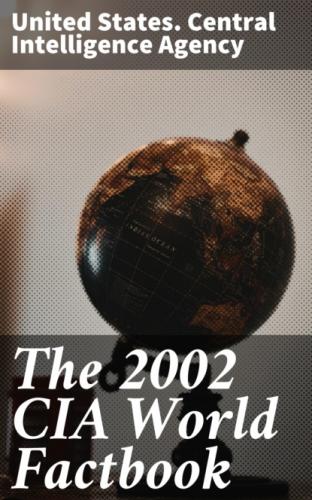Geography Albania
Location: Southeastern Europe, bordering the Adriatic Sea and Ionian Sea, between Greece and the Federal Republic of Yugoslavia
Geographic coordinates: 41 00 N, 20 00 E
Map references: Europe
Area: total: 28,748 sq km water: 1,350 sq km land: 27,398 sq km
Area - comparative: slightly smaller than Maryland
Land boundaries: total: 720 km border countries: Greece 282 km, The
Former Yugoslav Republic of Macedonia 151 km, Yugoslavia 287 km
Coastline: 362 km
Maritime claims: continental shelf: 200-m depth or to the depth of exploitation territorial sea: 12 NM
Climate: mild temperate; cool, cloudy, wet winters; hot, clear, dry summers; interior is cooler and wetter
Terrain: mostly mountains and hills; small plains along coast
Elevation extremes: lowest point: Adriatic Sea 0 m highest point:
Maja e Korabit (Golem Korab) 2,753 m
Natural resources: petroleum, natural gas, coal, chromium, copper, timber, nickel, hydropower
Land use: arable land: 21% permanent crops: 4% other: 75% (1998 est.)
Irrigated land: 3,400 sq km (1998 est.)
Natural hazards: destructive earthquakes; tsunamis occur along southwestern coast; floods; drought
Environment - current issues: deforestation; soil erosion; water pollution from industrial and domestic effluents
Environment - international agreements: party to: Biodiversity, Climate
Change, Desertification, Hazardous Wastes, Ozone Layer Protection,
Wetlands signed, but not ratified: none of the selected agreements
Geography - note: strategic location along Strait of Otranto (links
Adriatic Sea to Ionian Sea and Mediterranean Sea)
People Albania
Population: 3,544,841 (July 2002 est.)
Age structure: 0-14 years: 28.8% (male 528,678; female 493,531) 15-64 years: 64% (male 1,094,034; female 1,175,024) 65 years and over: 7.2% (male 111,524; female 142,050) (2002 est.)
Population growth rate: 1.06% (2002 est.)
Birth rate: 18.59 births/1,000 population (2002 est.)
Death rate: 6.49 deaths/1,000 population (2002 est.)
Net migration rate: -1.46 migrant(s)/1,000 population (2002 est.)
Sex ratio: at birth: 1.07 male(s)/female under 15 years: 1.07 male(s)/female 15-64 years: 0.93 male(s)/female 65 years and over: 0.79 male(s)/female total population: 0.96 male(s)/female (2002 est.)
Infant mortality rate: 38.64 deaths/1,000 live births (2002 est.)
Life expectancy at birth: 75.14 years (2002 est.) male: Total fertility rate: 2.27 children born/woman (2002 est.)
HIV/AIDS - adult prevalence rate: less than 0.01% (1999 est.)
HIV/AIDS - people living with HIV/AIDS: less than 100 (2000 est.)
HIV/AIDS - deaths: less than 100 (1999 est.)
Nationality: noun: Albanian(s) adjective: Albanian
Ethnic groups: Albanian 95%, Greek 3%, other 2% (Vlach, Gypsy, Serb, and Bulgarian) (1989 est.) note: in 1989, other estimates of the Greek population ranged from 1% (official Albanian statistics) to 12% (from a Greek organization)
Religions: Muslim 70%, Albanian Orthodox 20%, Roman Catholic 10% note: all mosques and churches were closed in 1967 and religious observances prohibited; in November 1990, Albania began allowing private religious practice
Languages: Albanian (Tosk is the official dialect), Greek
Literacy: definition: age 9 and over can read and write total population: 93% (1997 est.) male: NA% female: NA%
Government Albania
Country name: Republic of Albania conventional short form: of Albania local long form: Republika e Shqiperise
Government type: emerging democracy
Capital: Tirana
Administrative divisions: 36 districts (rrethe, singular - rreth) and 1 municipality* (bashki); Berat, Bulqize, Delvine, Devoll (Bilisht), Diber (Peshkopi), Durres, Elbasan, Fier, Gjirokaster, Gramsh, Has (Krume), Kavaje, Kolonje (Erseke), Korce, Kruje, Kucove, Kukes, Kurbin, Lezhe, Librazhd, Lushnje, Malesi e Madhe (Koplik), Mallakaster (Ballsh), Mat (Burrel), Mirdite (Rreshen), Peqin, Permet, Pogradec, Puke, Sarande, Shkoder, Skrapar (Corovode), Tepelene, Tirane (Tirana), Tirane* (Tirana), Tropoje (Bajram Curri), Vlore note: administrative divisions have the same names as their administrative centers (exceptions have the administrative center name following in parentheses)
Independence: 28 November 1912 (from Ottoman Empire)
National holiday: Independence Day, 28 November (1912)
Constitution: a constitution was adopted by popular referendum on 28
November 1998; note - the opposition Democratic Party boycotted the vote
Legal system: has not accepted compulsory ICJ jurisdiction
Suffrage: 18 years of age; universal and compulsory
Executive branch: chief of state: President of the Republic Rexhep MEIDANI (since 24 July 1997) head of government: Prime Minister Pandeli MAJKO (since 22 February 2002) cabinet: Council of Ministers nominated by the prime minister and approved by the president election results: Rexhep MEIDANI elected president; People's Assembly vote by number - total votes 122, for 110, against 3, abstained 2, invalid 7 elections: president elected by the People's Assembly for a five-year term; election last held 24 July 1997 (next to be held NA July 2002); prime minister appointed by the president
Legislative branch: unicameral People's Assembly or Kuvendi Popullor (140 seats; 100 are elected by direct popular vote and 40 by proportional vote for four-year terms) election results: percent of vote by party - PS 41.5%, PD and coalition allies 36.8%, NDP 5.2%, PSD 3.6%, PBDNJ 2.6%, PASH 2.6%, PAD 2.5%; seats by party - PS 73, PD and coalition allies 46, NDP 6, PSD 4, PBDNJ 3, PASH 3, PAD 3, independents 2 elections: last held 24 June with subsequent rounds on 8 July, 22 July, 29 July, 19 August 2001 (next to be held NA June 2005)
Judicial branch: Supreme Court (chairman is elected by the People's
Assembly for a four-year term)
Political parties and leaders: Agrarian Party or PASH [Lufter XHUVELI];
Albanian National Front (Balli Kombetar) or PBK [Shptim ROQI]; Albanian
Republican Party or PR [Fatmir MEDIU]; Albanian Socialist Party or PS
(formerly the Albania Workers Party) [Fatos NANO, chairman]; Christian
Democratic Party or PDK [Zef BUSHATI]; Democratic Alliance or PAD
[Nerltan CEKA]; Democratic Party or PD [Sali BERISHA]; Group of Reformist
Democrats [Leonard NDOKA]; Legality Movement Party or PLL [Ekrem SPAHIA];
Liberal Union Party or PBL [Teodor LACO]; New Democratic Party or NDP
[Genc POLLO]; OMONIA [Vagjelis DULES]; Party of National Unity or PUK
[Idajet BEQUIRI]; Social Democratic Party or PSD [Skender GJINUSHI];
Unity for Human Rights Party or PBDNJ [Vasil MELO, chairman]
Political pressure groups and leaders: NA
International organization participation: ACCT, BSEC, CCC, CE, CEI,
